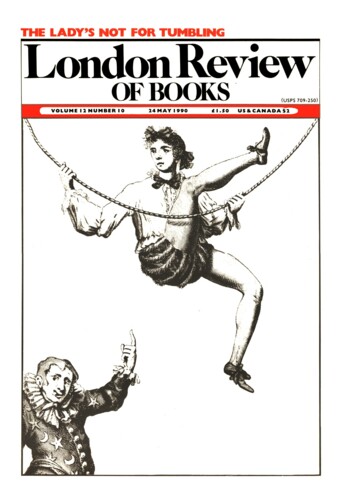Poor Darwin
Harriet Ritvo, 26 July 1990
Few scientists have provided the occasion for such an expense of ink as Charles Darwin. Although for much of his career he was appreciated only by a relatively small circle of fellow specialists, the publication in 1859 of The Origin of Species brought him to the attention of a much larger public. And the labelling as ‘Darwinism’ (or Darwinisme or Darwinismus) of a variety of Late Victorian views on matters biological, anthropological and sociological ensured that at least his name, if not precisely his work, would continue to command a high level of recognition. The importance of Darwin’s own ideas and the influence and contentiousness of some of the views that have been associated with them are not, however, the only reasons he has attracted the attention of so many commentators, both among his contemporaries and in the century since his death. The testimony of colleagues, friends and family suggests that he had an attractive personality as well. But, perhaps best of all from the point of view of later generations of writers, he was an enthusiastic saver of documents and thus left ample testimony on both counts. In recent decades Darwin has been well served by archivists and editors; his papers are readily accessible to researchers, his notebooks are now available in print, and the fifth volume in the magisterial edition of his correspondence was published earlier this year. So full has been the scholarly harvest of these rich primary materials that it is often referred to as ‘the Darwin industry’.


